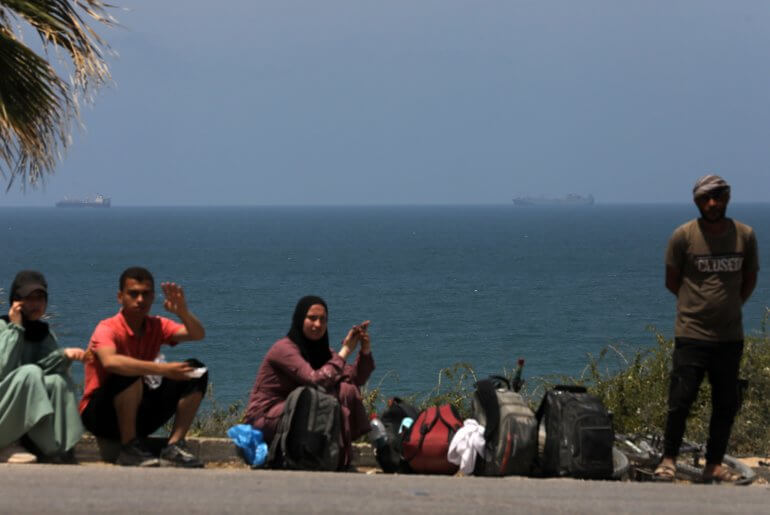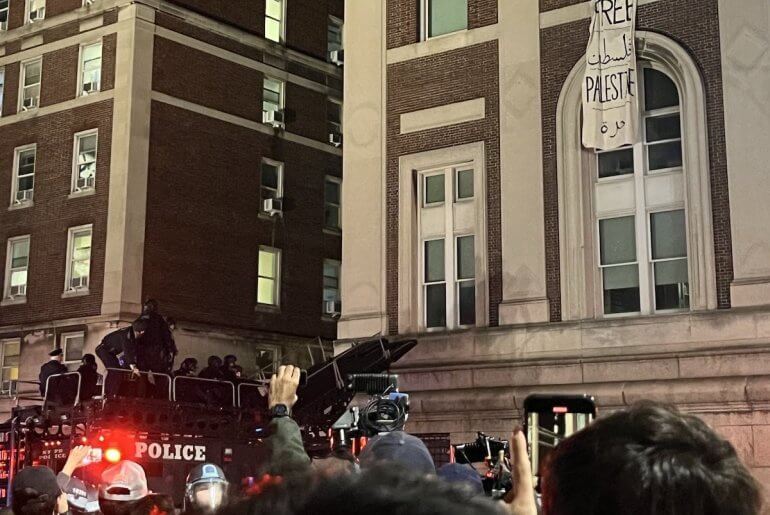In Palestine, olive oil is basically liquid gold.
Not only is Palestinian olive oil rich in flavor its also extremely financially valuable.
It is estimated that there are 12 million olive trees planted across the West Bank, and that the olive oil industry reportedly supports the livelihoods of more than 100,000 Palestinian families and accounts for a quarter of the gross agricultural income of the occupied territories.
It’s an intrinsic part of Palestinian culture and heritage, and for many Palestinians, olive oil represents so much more than just something delicious to eat.
Every year, after the first rainfall of the autumn season Palestinians set out from their homes and head to their olive grove which are sprawled across the rolling hills of Palestine and cover the land of the West Bank in beautiful shades of green.
Scenes of Palestinians on ladders, plucking the olives from their trees is one that has been played all across Palestine during the month of October, as Palestinians gather together for the olive harvest.
Many of the olive trees in Palestine are decades old and have been passed down in families by each generation.
For many Palestinians, the olive harvest isn’t just about picking olive it’s symbolic of their culture, their tradition, and the Palestinian ties to this land.
“My father inherited these [trees] from his father, and now we harvest them,” Jamal Nasser, 48, from the Ramallah-area village of Deir Qaddis told Mondoweiss, as he, his brothers, and children stood under the shade of a large olive tree in his family’s olive grove.
“These small ones are around 50 years old and the larger trees are even older than that,” Nasser said, pointing to the trees around him.
“When we were young children we didn’t know how to pick olives yet but we would come here and treat it as a fun trip or outing. When people get older, and their children grow up, they start coming here as well,” he said, pointing to his young sons.
“You can say it’s like a legacy that is passed down between the generations. This is the nature of our relationship with the olive trees.”
Jamal’s sister, Jamila, sat underneath a nearby tree next to her elderly aunt, as they sifted through the olives just picked by her brothers.
“[These trees ] mean a lot to us, it’s our culture, our life,” she said. “It’s one of the most basic things in our lives. The olive harvest season is essential to our lives.”
“It’s not something that’s passing, it’s something that lives inside us,” she continued.
When asked about what olive oil means to him and his family, Jamal referred to an old saying in Arabic, that says “olive oil is the foundation of the house.”
“The house that has olive oil in it, that family isn’t worried about anything, because olive oil is a basic necessity. And on the other hand, it is symbolic the olive tree has a special place in the heart of people here,” Jamal said.
“In general, everyone loves them. These trees are a blessing that have been a part of our land for thousands of years. So it has a special place in our hearts.”
After every olive is plucked from its tree, Palestinian families collect their harvest into bags and transport them to the nearest olive oil factory where dozens of machines sift, wash, grind, and press the olives until they turn into a thick golden oil.
Once the olive oil is poured into large plastic tanks, some families will go on to sell their oil across Palestine for hundreds of dollars.
While others will take just enough for themselves and give the rest to friends, family, and neighbors.
“As I explained before, my father and mother and older sisters helped to plant these trees,” Jamila told Mondoweiss. “I feel like I belong to this tree and that this connects me to my homeland of Palestine. And I hope that God will keep us on this land.”
“It’s well-known that in general people love and cherish olives,” Jamal said. “People have grown close to them. People here believe that someone who doesn’t have olives, he is poor, even if he has a lot of money.”
“Maybe he has money, cars, houses, but if he doesn’t have olive [trees], we believe he is missing something in his life. “
The Palestinian olive harvest, however, does not come without its problems.
Every year during the harvest, Palestinian farmers face violent attacks from the Israeli occupation.
In the next episode of our two-part series on the Palestinian olive harvest, we travel to the Nablus district in the northern West Bank, where we met farmers who came face to face with violent Israeli settlers and were brutalized for simply trying to harvest their olives.


